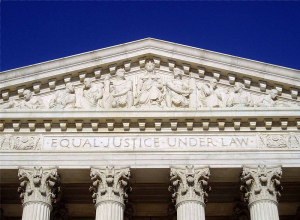SCOTUS to Decide on Padilla Retroactivity
Earlier today, the Supreme Court granted cert. in Chaidez v. United States, 655 F.3d 684 (7th Cir. 2011). Chaidez held that the Court’s decision in Padilla v. Kentucky, 130 S. Ct. 1473 (2010), would not be applied retroactively to defendants whose convictions were already final when Padilla came out. In Padilla, the Court held that a lawyer performs below minimal constitutional standards when he or she fails to advise a client of the deportation risks of a guilty plea. Now, the Court itself will have an opportunity to determine whether its decision should have retroactive effect.
The majority and dissenting judges in Chaidez all agreed that the case turned on whether Padilla announced a new rule of criminal procedure, within the meaning of Teague v. Lane, 489 U.S. 288 (1989). With only a couple of execeptions not relevant here, Teague prohibits retroactivity for new rules. So, the question in Chaidez seems to boil down to whether Padilla announced a new rule or merely applied the basic ineffective assistance test of Strickland v. Washington, 466 U.S. 668 (1984).

